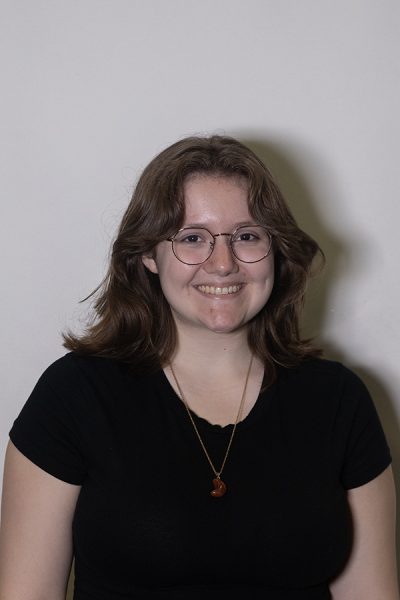The Ithaca College Faculty Council met Dec. 3 to discuss the college’s ongoing work with the Huron Consulting Group and hear from two guest speakers about actions the college can take to increase enrollment and revenue.
The meeting opened with a report from Melanie Stein, provost and senior vice president for academic affairs, who gave the council an update on the college’s current work with the Huron Consulting Group on a deficit elimination planning initiative. Stein said the plan will help the college find ways to achieve both short and long-term financial stability.
“We have to identify where we can invest in our community, where we can grow … and how we need to adapt in order to continue to provide the things that we want to provide students,” Stein said.
Stein said the group began working with the college this past October and performed a diagnostic current state assessment, which included interviewing campus leadership and gathering details about the college’s current financial state to build a model of the budget. Stein also said the group is now working with the college to create a website which will be released around Dec. 7 or 8. The website will include a detailed timeline of the work Huron is conducting and will provide a way for the college’s community to share ideas in regards to the work.
The council then heard from Paula Younger, executive director for Government, Community, and Constituent Relations, who introduced herself and the work she does for the college. Younger, who served in the same position once before from 2018 to 2020 before leaving and rejoining again in 2024, said the main purpose of her position is to serve as the primary contact for any external organization that is looking to do business or partner with the college.
“When I interact with the government, there’s that combination of politics, perception and partnership,” Younger said. “I’m looking for our government representatives to be ambassadors for us.”
The council then heard from Rakin “Rock” Hall, vice president for Enrollment Management and Student Success, about how the college is currently working to combat an increasing budget deficit. Hall said his main responsibility with the college is to quantify, qualify and diversify the student population. Hall said there are two of the major problems getting new students to enroll and apply: the college is not actionable and it fails to license enough names of prospective college students who are currently in high school.
Hall compared the number of names the college has licensed in past years to the number of names licensed by Syracuse University.
“Syracuse isn’t shinier than us,” Hall said. “Their facilities aren’t better than ours. They license more names and get out of the gate much sooner than we do.”
Hall presented a dashboard he worked on with the Office of Information Technology and Analytics that tracks student applications to the college and provides updates in real time. The dashboard, which Hall said had been last updated that morning, reported the college currently has 8,534 applications for the 2025–26 academic year, which is a 7.97% increase from the 7,904 applications the college had at the same time last year. Hall said the current goal for the 2025–26 academic year is roughly 11,000 applicants.
Hall said the college is being much more proactive when it comes to connecting with prospective students for the upcoming academic year than they were last year.
“[With] past campaign practices, we licensed names in February [and] started marketing to those names throughout the year in the hopes of pulling them here,” Hall said. “Now we license names on a monthly basis as [students] are opting into the SAT, as they’re opting into the ACT.”
Hall also said the college will reach out to students at private high schools because the college itself is a private institution.
“Overwhelmingly, we receive applications from families [making] north of $150,000 a year,” Hall said. “We yield families [with an annual income of] $60,000 to $90,000. I’ve talked about this idea with my team that we can’t walk, talk and act like a state school. In my opinion, to a certain degree, we do that.”
Hall said that aside from licensing more names of students in all years of high school, the college is attempting to increase enrollment by using targeted marketing strategies.
“We can say ‘you’re outdoor action-adventure, you’re introverted research, you’re theater, music and dance, and we have the ability to send you direct messaging that addresses that,’” Hall said.
Following the presentation, Tim Reynolds, assistant professor in the Department of Exercise Science and Athletic Training and a member of Faculty Council, said it was helpful to see this sort of action taking place after hearing so much about the budget deficit.
“Obviously, there’s concern in terms of the amount of students that are being enrolled,” Reynolds said. “We hear about these numbers, but to see the action behind the scenes, at least the mission and trajectory, I think it was really encouraging.”
The council then discussed a list of the questions the student statement subcommittee created for end-of-semester student evaluations, which had been touched on before in previous meetings. The subcommittee members received another round of feedback about the questions and confirmed they plan to eventually bring the questions to the Ithaca College Student Governance Council to get student input on the questions, as well. The council then voted to end the final meeting of Fall 2024.









